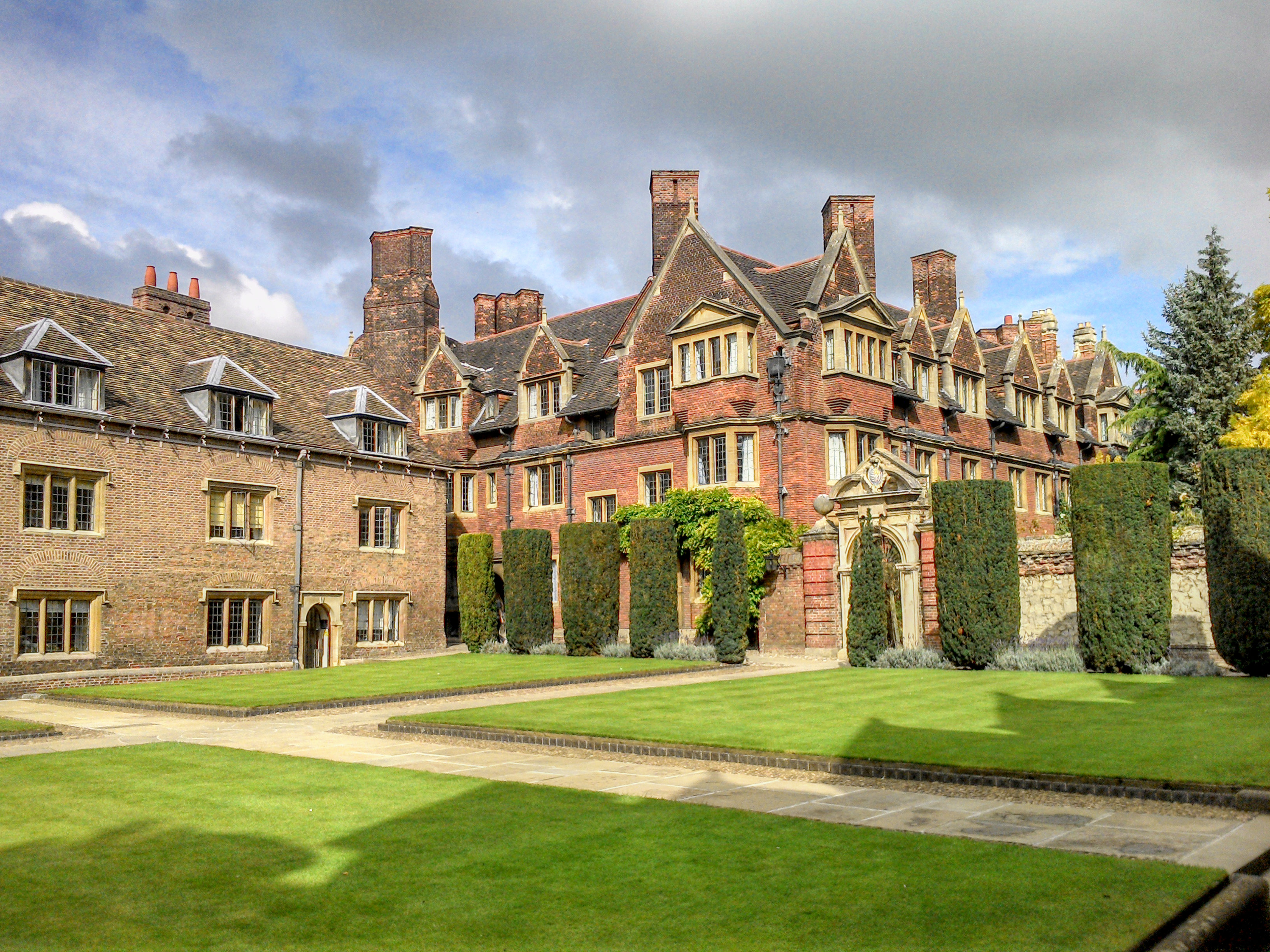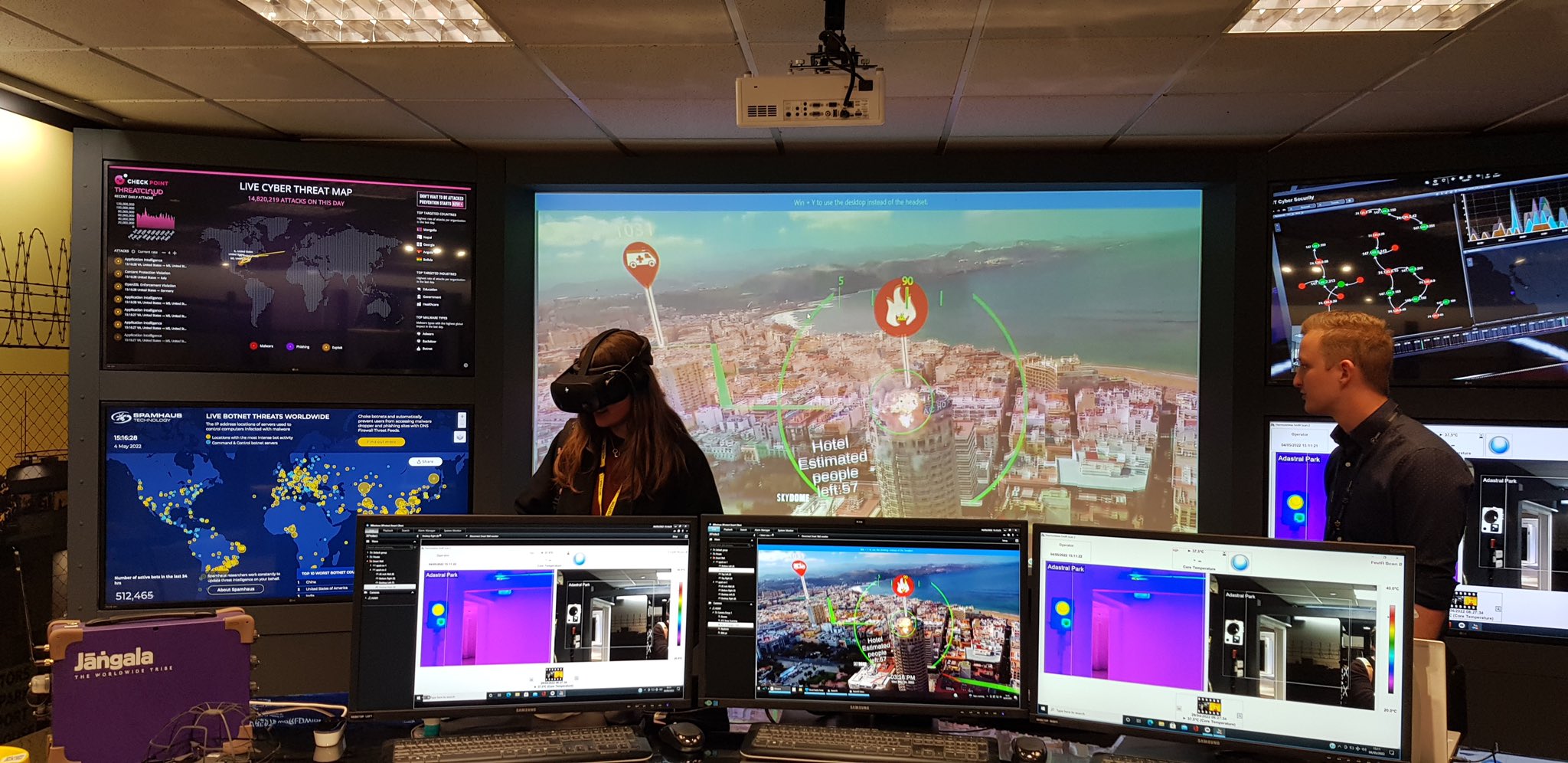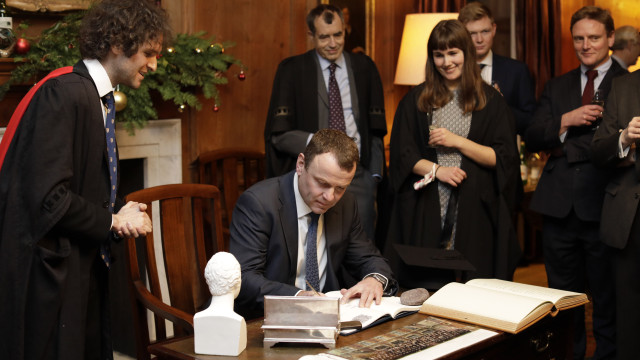June 2022 - Katy Bennett
Katy Bennett (2017) offers her reflections on a year working for the Corporate Partnership Programme after graduating from Pembroke in 2021
Despite having been a student at Pembroke for four years, I hadn’t heard of the Corporate Partnership Programme (CPP) until last year – and coming to understand this fascinating and unique bridge between business and academia has been a highlight of my time working at Pembroke.
Part of the reason I hadn’t come across it as a student is that the CPP works ‘behind the scenes’ of academia, making connections between academics researching in Cambridge, and Pembroke’s Corporate Partners, who range from technology giants such as BT and Dell, to social enterprises such as Open Society Foundations. There are however also more student-facing elements – particularly the Parmee Prize competition, founded by William Pitt Fellow Dr Richard Parmee of Cheyney, and student internships, such as those offered by BT.
The Corporate Partnership team works with each partner in different and unique ways, depending on their interests and needs – developing internships, facilitating workshops and seminars, or simply opening up informal conversations and exchanges of ideas. In the past few months, I have undertaken a variety of activities with different partners, from visiting BT’s Adastral Park, taking a tour of their robotics lab and trying out Virtual Reality; to exploring Open Society Foundation’s new office redevelopment, which was in part informed by conversations initiated by Pembroke.
But there are also overarching themes which bring the Corporate Partnership Programme together as a whole. I joined towards the tail-end of the 25th Anniversary of the CPP in 2021, which had been themed around ‘Climate Rescue’, and how these collaborations can make a tangible impact towards proactive solutions. This has continued into 2022, now framed as ‘Environmental engagement and leadership’.
This theme has already been reflected in most of our blog posts for this year, most recently Dr Mark Wormald’s reflections on the relationship between poetry and conversation. It will also inform the July William Pitt Fellows’ Virtual Round Table and the October William Pitt Seminar, both of which will be broadly centred on trends in environmental leadership. Seeing the ways in which the CPP can make this kind of event happen and push forward important conversations, as well as bring in the expertise of all its Partners, has given me fascinating insight into the practical ways in which academia and business come together for impact.
The highlight of this role however has undoubtedly been the variety of interesting people I’ve had the opportunity to meet. Since I started in October, we have admitted three new William Pitt Fellows, for Capven, Dell and Grosvenor. In each, the admission ceremony is followed by High Table dinner – which is both an opportunity to celebrate the partnership and discuss the future working relationship, but also to make connections with people you might not otherwise meet. Through these conversations and others like them, I’ve been able to learn about the early days of IVF, the science of black hole observation, and cycling across Europe and Asia.
From my own perspective, while applying for PhDs this year I’ve had to think hard about the impact I envision my research having, not only within but also outside of academia. Working in a role which is so focused on producing this kind of impact and being so involved in the practical mechanisms which achieve it has been critical in helping me think about how I might pursue this within my own work over the next few years.


